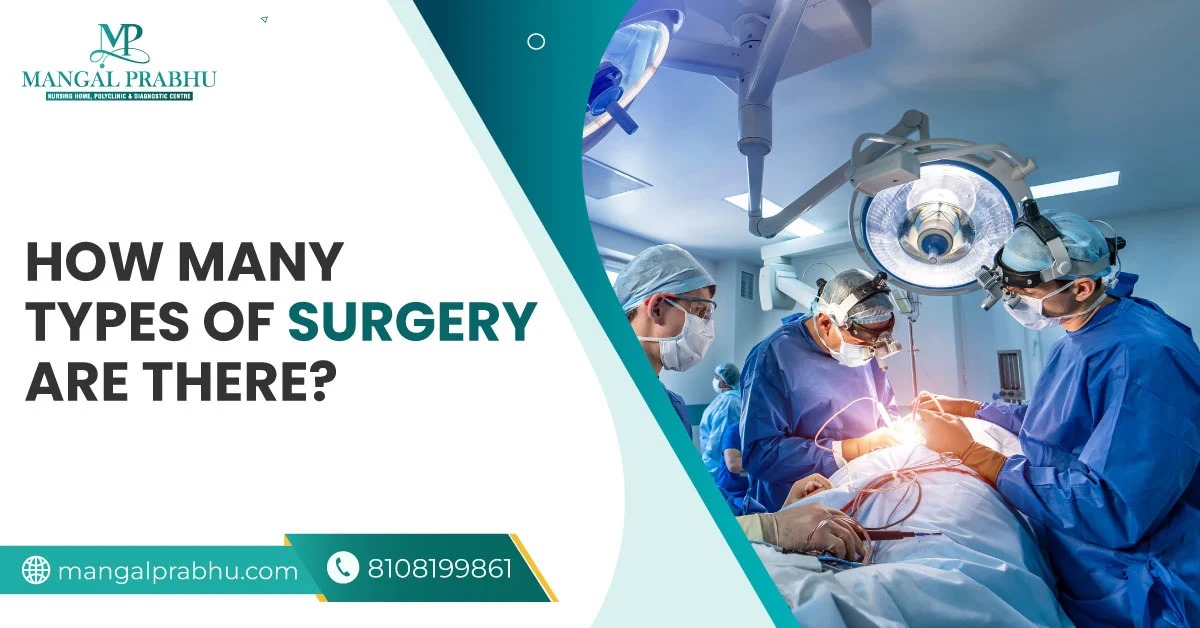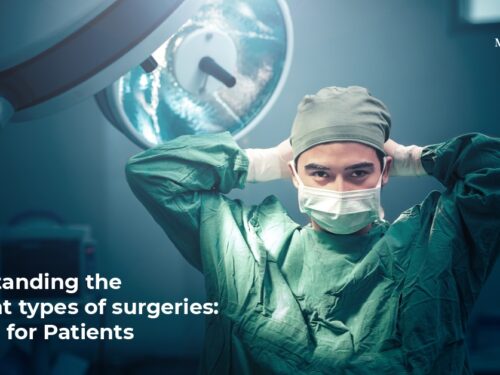
A surgical procedure is an invasive medical treatment recommended for patients who have sustained an injury or are diagnosed with a serious medical issue. The term “surgery” can sound daunting, but the advancement in technology and modern techniques to execute surgical procedures have made it pretty common. In fact, a vast majority of surgeries performed at surgery hospitals in Navi Mumbai involve specialized equipment, like a laparoscope or a robotic arm, for increased precision and faster recovery. Let’s explore different types of surgeries.
Common Types of Surgery
a) General Surgery:
A general surgeon in Navi Mumbai specializes in various surgical procedures that involve your abdominal cavity. It mainly includes surgery of your liver, appendix, spleen, small and large intestine, endocrine system, breasts, and more.
b) Orthopedic Surgery:
This area of medical science treats musculoskeletal conditions, such as rheumatoid arthritis, osteoporosis, sports injuries, and other benign or malignant bone diseases.
c) Neurosurgery:
A neurosurgeon specializes in brain, spinal cord, and other surgical procedures related to your nervous system.
d) Cardiovascular Surgery:
Cardiovascular surgery covers all heart-related surgeries, including bypass procedures, angioplasty, and lung surgery.
e) Plastic Surgery:
This area of medicine involves cosmetic and reconstructive surgery, such as facelifts, breast augmentation, nose reshaping, liposuction, and tummy tuck.
Specialized Types of Surgery
i) Laparoscopic Surgery:
Laparoscopic surgery is a minimally invasive procedure that involves small incisions made on the abdomen or the affected area. It can be performed for a diagnostic purpose or to treat a specific medical condition. Hysterectomy is commonly performed with a laparoscope.
ii) Robotic Surgery:
Robot-assisted surgeries have gained immense popularity lately. They’re mostly preferred for joint replacement surgeries. A surgeon uses a robotic arm to make precise cuts and ensure accurate prosthesis implantation.
iii) Transplant Surgery:
When your vital organs malfunction or stop functioning altogether, a transplant surgery might be needed to restore your normal body function. In this procedure, a healthy organ from the donor’s body is removed and implanted into the recipient’s body. Sometimes, the surgeon removes the healthy parts of your body and implants them into your damaged parts.
iv) Bariatric Surgery:
It is for patients who can’t lose weight despite diet modifications and weight loss plans. The surgery decreases hunger hormones and cuts a major portion of the stomach.
Emerging Types of Surgery
A) Regenerative Surgery:
This concept involves regenerating damaged tissues and organs in the body through gene therapy, stem cell therapy, and tissue engineering.
B) Gene Therapy Surgery:
Gene therapy is an advanced medical procedure that fixes defective genes by removing or altering the DNA in a human’s gene. The treatment is effective for several gene-related disorders.
C) Nanosurgery:
Nanosurgery is a highly specialized yet minimally invasive medical procedure that focuses on repairing cells without damaging the surrounding organs and tissues. The surgery is performed with devices working at the nanoscale.
Conclusion
Modern science has made surgery less complicated. There’s a low risk of excessive blood loss or surgery-related complications, such as infection and blood clots. Antibiotics, sutures, and anti-inflammatory medication are quite effective in improving the success rates of surgery, making it suitable for most patients.

